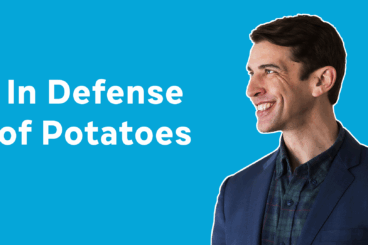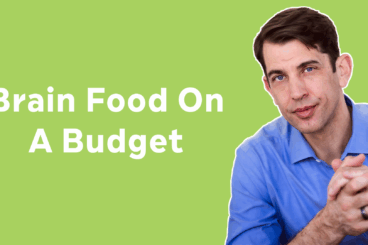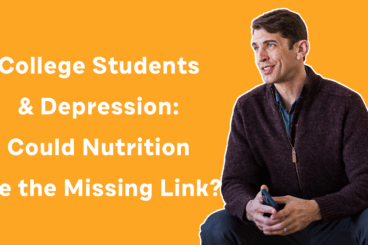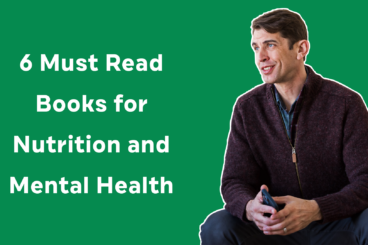Table of Contents
So you want to learn about how to become a Nutritional Psychiatrist? I’m one of the leaders in this new field. Nutritional Psychiatry incorporates food into mental health and mental health treatments. Let’s talk about these two different pieces of knowledge that you need to really master if you’re going to be a great Nutritional Psychiatrist.
Becoming a mental health clinician
The first set of skills is thinking about mental health. There are lots of different ways to become a good mental health clinician. You can go to medical school and become a psychiatrist like me. You can get a doctorate in psychology. You can get a master’s in social work or a master’s in mental health counseling. There are all kinds of different ways to be involved in people’s mental health, along with being a school counselor or a member of a clergy or a church or pastoral counseling center. So there are lots of different ways to learn about mental health. Let’s talk a little bit about what those fundamental skills are.
Mental Health Skills
You want to be good at helping people understand what is going on in terms of their mental health. So that’s diagnosing and helping people understand their inner world and their set of symptoms. You’ll want to have a good sense of treatment. Lots of us do different types of treatment, but what’s important when you’re in the mental health space, is truly knowing that there’s a broad set of treatments for different mental health conditions. There are medications and there are different types of psychotherapies. There are also other lifestyle treatments like nutrition that really can be helpful and beneficial to patients.
Mental health involves a set of skills and the part that our team and I like to really emphasize is the importance of being an active and an engaged clinician and getting a lot of experience in different mental health settings. My team has worked all over: in community mental health settings, emergency rooms, inpatient units and outpatient settings. It’s also important to work with patients, families and really listen and hear how much each of us have our own unique set of values and experiences when it comes to our mental health. Those skills are absolutely fundamental to being in this space and to being a good Nutritional Psychiatrist.
Developing nutrition skills
The other set of skills that you have to get is around nutrition. Specifically, how do you apply nutrition in a mental health setting? There’s a whole world of individuals with lots of specialized training in nutrition: dietitians, nutritionists, individuals who have a master’s in nutrition and doctorates in nutrition. In the mental health setting, we want to think about how to best nourish the brain and how do we help people have a joyful relationship with food which activates their motivation so they change their diet and eating behaviors to best support their mental health and their brain health.
How to incorporate nutrition
There are a few pieces of this that are really important. First, it’s important to have a stance in your own life as a clinician and as an individual about food, your food values, and how you nourish yourself in your own life. Just like in mental health, it you have to walk the talk if you’re going to be involved with helping others in this area.
Certainly you need to know a lot about the new science of food and mental health. There’s been so much data that’s come out over the past 10 years.
There are some new principles for us such as inflammation and the microbiome. I completed my medical school training in 2000. I completed my residency at Columbia in 2004. That’s not what we talked about back then. So it’s really exciting to see these new opportunities in terms of how we can approach mental health and brain health and how we can use these concepts to better take care of patients and better understand these illnesses.
So how does nutrition get involved? Well, nutrition is absolutely fundamental to one of the newest and most exciting concepts, neuroplasticity. This refers to how our brain grows and changes, and proper nourishment and understanding, where to find the most important nutrients for mental health: omega-3s, iron, vitamin B12. This is a cornerstone of the knowledge base that you need in Nutritional Psychiatry. What are the nutrients, what foods you find them in.
Behavioral Change
Then there’s this part that I feel people who are in the mental health space are particularly good at. And this is how do we activate behavioral change? How do we really explore with an individual? What are their values around food? We’re skilled at the ability to understand the inner workings of an individual, what their motivations are, and how things like culture and personal values really impact things like eating behavior and food choices. That’s one of the aspects of Nutritional Psychiatry that I think is really important. At the Brain Food Clinic something that separates us in the food advice or wellness advice space is our desire to really help people find a joyful existence with food that nourishes their brain, but is achievable within the confines and parameters of their life. Those are some ideas around the skills that you need to practice Nutritional Psychiatry or to integrate nutrition into mental health work.
The goal of this is to help individuals eat with more nutrient dense foods, eat with more joyfulness and eat to support their mental health. I hope it helps you in your journey that you hear my encouragement. There are so many of us that are starting to really think carefully about how we integrate nutrition into mental health care in a responsible and effective way. There are so many different ways for you to gain these skills. There are lots of ways to gain experience on the mental health side of things. How do we help patients with mental health concerns and so many ways to gain the skills in nutrition. Whether that’s you learn more about preparing food as a chef or taking some cooking classes. Whether you do some studying around nutrition or get a master’s or an undergraduate degree in nutrition. Whether you study dietetics or nutrition in school. These are all ways to get these two seemingly disparate knowledge sets that we are increasingly interweaving in the field of Nutritional Psychiatry.




Very informative and innovative
Hi!
I am a women on the spectrum and struggle with textures and sensory issues. often times I do not meet my nutritional requirements because of certain aspects of my autism. I was wondering if you work with people who have autism and eating differences?
Hey Justine, thanks so much for the comment. Emilie Berner, one of our health coaches, loves helping folks to find creative ways to eat for brain health.
Hi Dr. Ramsey,
I am a master’s student in a clinical mental health counseling program with Liberty University. I am also seriously into healthy eating, and believe in God’s way of eating, as He did create our bodies. In one of my previous classes one of my assignments was to respond to classmates and pose a question to them. I asked a student if she had considered nutrition as a connection to mental health. That instructor said I did an excellent job. Then I took research methods and handled one of my assignments the same exact way. That instructor basically scoffed at me telling me that food/diet has nothing to do with mental illness, is more of a medical field topic, and to find something else to talk about. Therefore, my question is, how do I incorporate food/diet into my future counseling practice without getting in trouble, or was my one teacher just being ‘cranky’? I have found other research, along with yours, that supports diet being connected to mental status, but would I be supported legally, in a future job? Thank you for the opportunity to ask you my question.
Hi Shannon, thanks for your great question! People will always have different opinions, so the best thing we can do is stick to what the research says and suggests. In terms of legality, I imagine it will depend more on where you are working. For example, if you are working within an agency that has a specific set of beliefs, your practice will likely reflect those beliefs. Depending on your degree, you will also have a code of ethics to follow. As long as you are practicing within the scope of your license and adhereing to your code of ethics and any requirement from your agency, I can’t see why you would have any problem. I hope that helps and good luck!